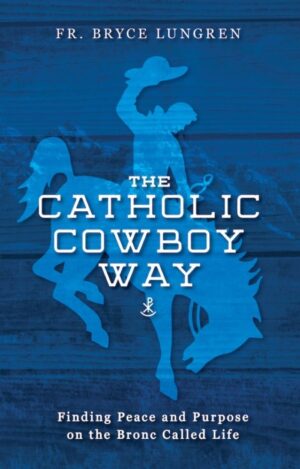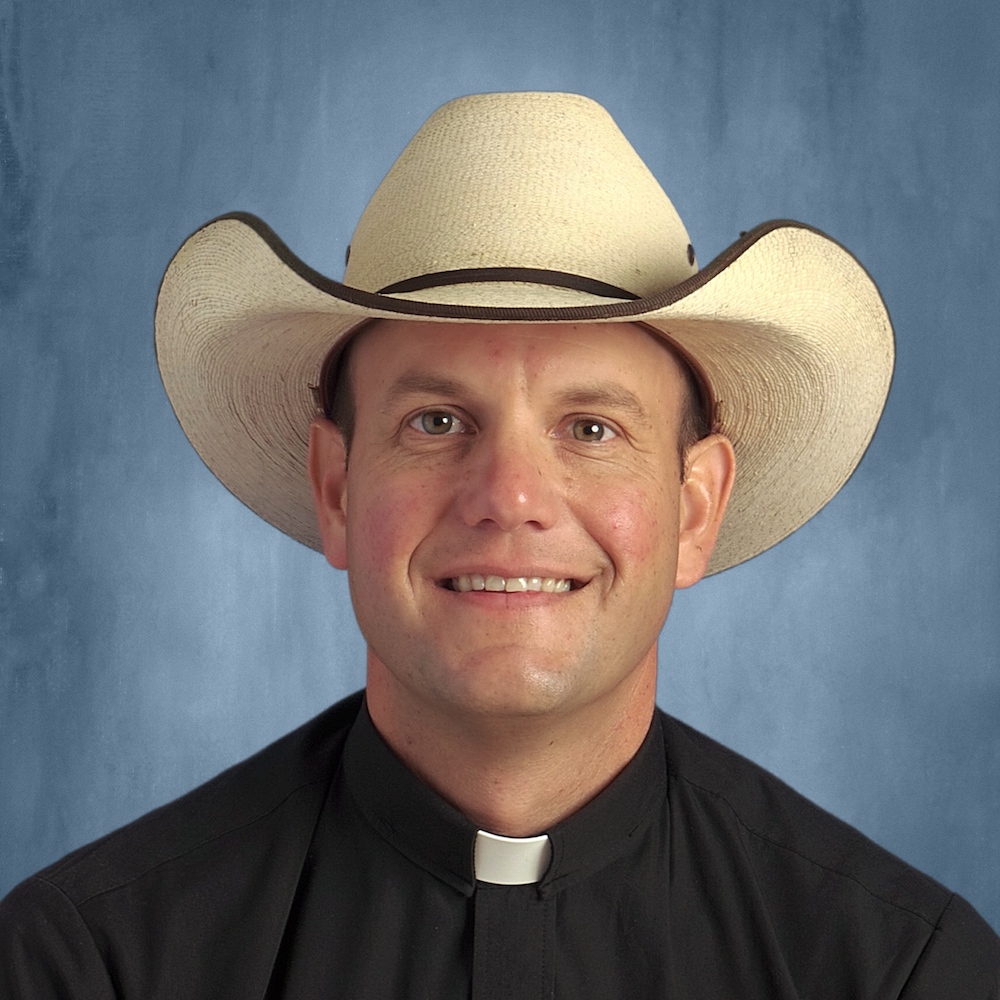|
Getting your Trinity Audio player ready...
|
I was struck by the optional Mass readings this past May 1st, the feast of St. Joseph the Worker. I thought for sure they would include Genesis 2:15: “The LORD God took the man and put him in the garden of Eden to till it and keep it.” But they didn’t. They did, however, proclaim Genesis 2:3: “So God blessed the seventh day and hallowed it, because on it God rested from all his work which he had done in creation.”
This apparent discrepancy became good material for preaching on the Church’s first precept, “You shall attend Mass on Sundays and holy days of obligation and rest from servile labor” (CCC 2042). If you want to stir the pot among some blue-collar Catholics, preach about resting on Sundays. I didn’t get stoned, but I did get a lot of questions on what keeping holy the Sabbath looks like in the 21st century.
Pope Pius XII inaugurated St. Joseph’s feast day in 1955 to counteract the degradation of work by communist governments, which enforced working on Sundays. Communist leaders knew that if they could get people to forsake their weekly religious observance, abandoning God was just a hop, skip, and a jump away. Pope Pius understood the danger of working on Sunday, and so did God.
Orthodox. Faithful. Free.
Sign up to get Crisis articles delivered to your inbox daily
God gave Moses the commandment to keep holy the Sabbath (Exodus 20:8-11). The Lord expounds upon this when He says, “Six days you shall work, but on the seventh day you shall rest; in plowing time and in harvest you shall rest” (Exodus 34:21). For God’s chosen people, the Sabbath rest was to be strictly observed.
Even Jesus, who came preaching the spirit of the law and not its letter, didn’t do away with the Sabbath principles. He said, “Think not that I have come to abolish the law and the prophets; I have come not to abolish them but to fulfill them” (Matthew 5:17). Early Christians understood that Jesus’ Resurrection fulfilled the law of the Sabbath, as they transferred the essence of the Sabbath rest from Saturday to Sunday, renaming it the Lord’s Day.
In the 20 centuries that followed, Christians have seen Sunday not simply as a day to remember our Lord’s victory over death in His Resurrection, or just a day not to work, but as the Eternal Day. This 8th Day is meant to be a day to rest in the reality that because of our membership in the Body of Christ, the Church, we already participate in the eternal life of Heaven. Therefore, our activity on Sunday should signify that.
This is the foundation for the Church’s precept regarding Sundays. Our attendance at Mass is essential to this truth. Here we receive Eternal Life in the Eucharist (John 6:54). This is not a mere symbol but a present reality. The Mass has always been seen as a participation in Heaven while still on earth. Thus, the Church, following God’s commandment, sees attending Sunday Mass as essential to staying in a state of grace.
She also sees resting from servile labor as a necessary ingredient to experiencing Heavenly realities even now. Therefore, she commands us to rest on Sundays. It is here that the People of God in America start picking up stones. We don’t like to rest. And if we do, it’s under my terms. Besides, what are we supposed to do if we are not productive on Sundays: just twiddle our thumbs?
I think people’s biggest hesitation toward actually following God’s third commandment to the full is the fear of being bored. Nobody likes boredom. But is that a fear or a reality? Is productivity the only way to avoid the stagnation of having nothing to do? I think not, and I bet most people would agree if they stopped and thought about it.
The vortex of busyness occurs when we never step out of the storm of life. If productivity is our only worldview, intentionally taking a day to stop and rest from work is unimaginable. But stepping out of the world and resting in God is how we regain our bearings in life. When you’re lost in the woods, the right thing to do is stop and sit on a tree stump. In the action of resting, your sense of direction will come back. The vortex of busyness occurs when we never step out of the storm of life. If productivity is our only worldview, intentionally taking a day to stop and rest from work is unimaginable.Tweet This
That makes sense, but what does modern day Sabbath rest actually look like? The answer to this conundrum is found in the second half of the Church’s precept: to sanctify the day and rest from those works that would impede such sanctification (CCC 2042). To sanctify something is to set it apart for holy use. To sanctify Sunday is to set it aside to humanly experience Heaven on earth. At its essence, to rest on Sundays is to rest in God.
Resting in God is not passive. God is pure act. To rest in God is to be consumed by His presence. All our activity on Sunday, then, is to be ordered to experiencing God and our redemption. This is how Sunday becomes the Lord’s Day, and when it does, we find peace and security for the rest of the week.
The Israelites had it easy. The prescripts to live out the Sabbath rest were clearly laid out. For us it is different, but it is still simple. Our activity on the Lord’s Day should draw us into Him and each other. It should look wholly different from any other day of the week. And if it doesn’t, these actions are probably impeding the sanctification of Sunday.
When Mom was growing up, Grandpa went through a phase of not letting them change out of their church clothes on Sunday. I’m sure he was well intentioned, but that’s probably a bit more of the letter-of-the-law than the spirit. The Spirit of Sunday is to encounter God as our providential Father. Mass is the ultimate expression of that. But so is resting.
The active form of resting is known as leisure. Leisure isn’t simply time away from work. Authentic leisure is intentional time set aside to commune with God on a natural level. Leisure is the perfect activity for resting on Sunday. It may involve going fishing. It might mean taking a nap. It likely involves having dinner with the family or visiting the neighbors. And it should involve legitimate acts of charity (CCC 2168-2188).
By this author:
-
The Catholic Cowboy Way$17.95
Such intentional rest from the worldly hustle and bustle grounds us in Reality, who is God. In doing so, we come to realize that the chaotic forces of the world are not in charge of my life; God is. He is my providential Father, in control of all forces, both natural and supernatural. Such lived knowledge provides me with the peace of eternal life.
Intellectual knowledge of this truth is not enough. We must experience it. Jesus said that the Sabbath was made for man, not man for the Sabbath (Mark 2:27). God didn’t command the Sabbath rest to glorify Himself but that we might find our glory in Him. Mankind can only discover their true dignity and stability in relationship with God, their creator and sustainer. God created Sunday that we might not only experience this relational reality but also that this truth would inform the rest of our lives.
Living out the Lord’s Day reorients our lives around God and not the world. It makes God the center of my universe. This revolution shifts my perspective from revolving around the world to the world revolving around God. In doing so, the chaos becomes controlled, the stress finds peace, and the finite encounters eternity. Sunday is here so that we can experience Heaven on earth.
Truly honoring Sunday as the Lord’s Day brings stability and focus to my world. Such sacred action consequently restores these virtues to the rest of the world as well. The beauty of this holy endeavor is that it is something I can contribute to. God calls all of us to keep holy the Sabbath. Do I have the courage to trust Him and step into these restful waters?

